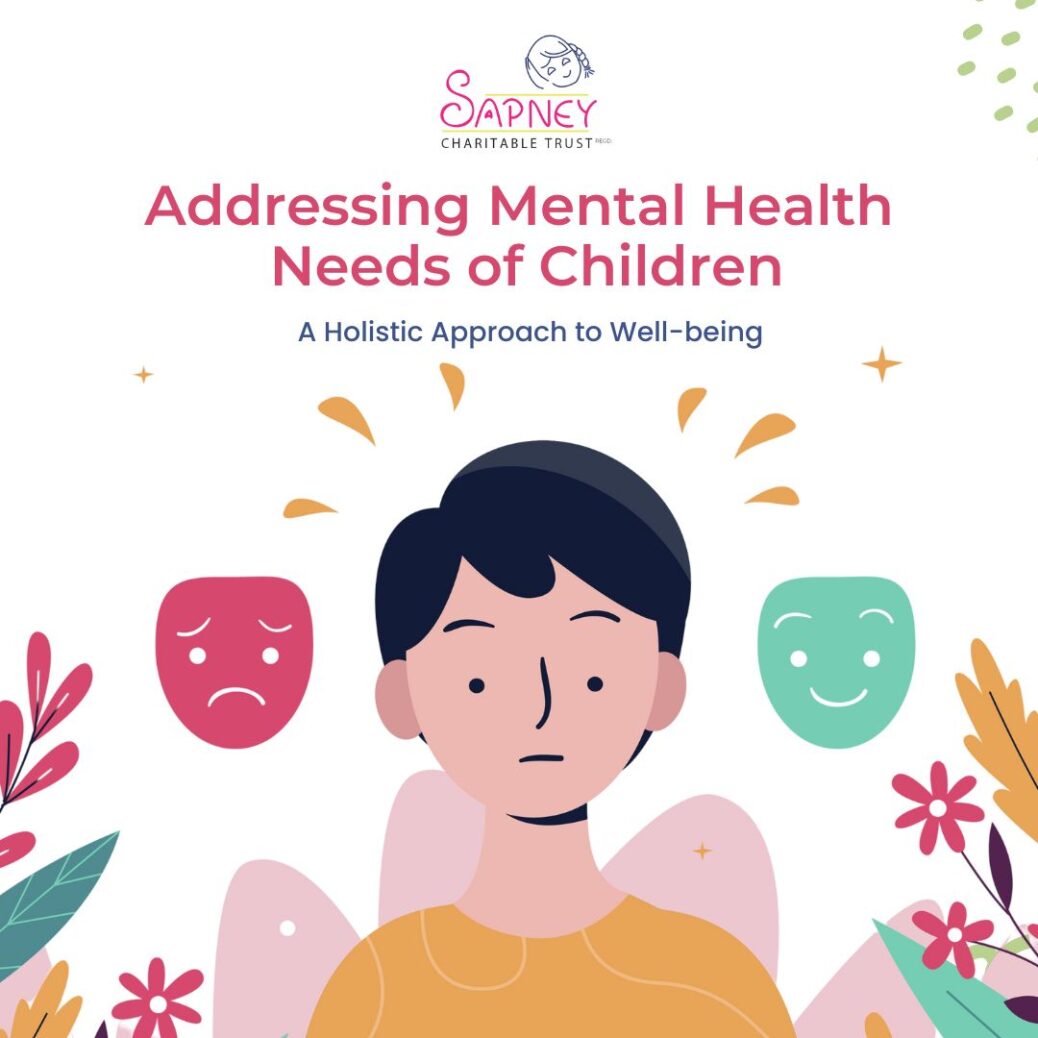
When it comes to children’s well-being, it’s not just about their physical health. We need to consider their emotional, social, and spiritual well-being too. To ensure children are truly thriving, they need to feel healthy, happy, and safe in all aspects of their lives.
Each part of a child’s well-being is interconnected and influences the others, which means that to improve one area, we need to focus on all of them. This involves providing children with access to supportive relationships, encouraging regular physical activity, and ensuring they have a nutritious diet.
Mental health issues can affect anyone, including children. As a society, it is our responsibility to ensure that children receive adequate care and support for their mental health needs. Children are often vulnerable to stressors that can lead to mental health problems such as anxiety, depression, and behavioral issues.
Therefore, it is essential to take a holistic approach to well-being that addresses the mental, emotional, physical, and social needs of children.
Mental health challenges for Children
Children face a range of mental health challenges that can impact their overall well-being. Anxiety, depression, and ADHD are some of the most common mental health issues affecting children.
These conditions can manifest in different ways, including difficulty sleeping, difficulty concentrating, and changes in mood or behavior.
Other mental health issues that affect children include:
- Autism Spectrum Disorders (ASD): A neurodevelopmental disorder that affects a child’s social interaction and communication.
- Obsessive-Compulsive Disorder (OCD): A disorder characterized by recurrent and persistent thoughts, impulses, or images that are intrusive and cause anxiety.
- Post-Traumatic Stress Disorder (PTSD): A mental health condition that can develop after a traumatic event.
The Impact of the Pandemic on Children’s Mental Health
The COVID-19 pandemic has brought additional stressors to children’s lives, such as disrupted routines, school closures, and social isolation. These stressors can lead to increased anxiety, depression, and behavioral issues.
According to a report by the Centers for Disease Control and Prevention (CDC), emergency department visits for mental health-related issues among children aged 5-11 increased by 24% in 2020 compared to 2019.
Addressing the Mental Health Needs of Children
To promote children’s overall well-being, educators need to take a holistic approach and consider all aspects of their needs. This includes physical, behavioral, social, and cognitive needs.
A holistic approach to well-being is essential in addressing the mental health needs of children. This approach considers the interconnectedness of the physical, emotional, social, and mental aspects of a child’s life. It involves addressing the underlying causes of mental health issues and supporting the child’s well-being.
- Early identification and intervention: Early identification of mental health issues is crucial in providing timely intervention. It involves regular mental health screenings for children and providing support to those who need it.
- Mental health education: Educating children, parents, and caregivers about mental health can help reduce stigma and improve understanding. It can also help children recognize the signs of mental health issues in themselves or others and seek help when needed.
- Access to mental health services: Access to affordable and quality mental health services is crucial in addressing the mental health needs of children. This includes counseling, therapy, and medication if needed.
- Family and community support: Family and community support play a vital role in promoting children’s mental health. It involves creating a supportive and nurturing environment for the child to thrive.
- Healthy lifestyle: Encouraging healthy lifestyle habits such as exercise, a balanced diet, and adequate sleep can improve overall well-being and reduce the risk of mental health issues.
Conclusion
The mental health needs of children should not be overlooked. A holistic approach to well-being that addresses the physical, emotional, social, and mental needs of children is essential. It involves early identification and intervention, mental health education, access to mental health services, family and community support, and a healthy lifestyle. By addressing the mental health needs of children, we can promote their overall well-being and help them lead fulfilling lives.

